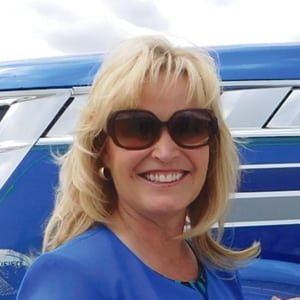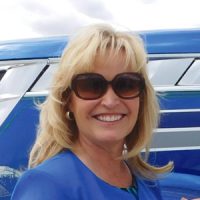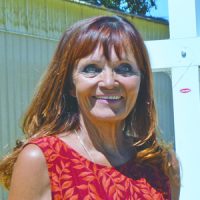
Home » Certifications aim to help women-, minority-owned companies
Certifications aim to help women-, minority-owned companies

August 11, 2017
By Robin Wojtanik
An entrepreneurial spirit, combined with ingenuity and determination has helped Salina Savage grow her Richland-based business to the point where she may no longer be designated a small business.
She’s had help along the way from the Washington State Office of Minority and Women’s Business Enterprises, or OMWBE.
The Olympia-based office certifies businesses as woman-owned and minority-owned, among other federal certifications.
Gigi Zenk, OMWBE communications director, said it’s not a designation intended to provide preferential treatment to women or minorities, but rather “to level the playing field” when it comes to public contracting and procurement.
Having the certification is “one more tool in the toolbox for small businesses to grow and succeed,” Zenk said.
Roughly 2,500 small businesses in the state of Washington hold a certification. This includes state designations as woman-owned and/or minority-owned and federal designations as a disadvantaged business enterprise, an airport concessionaire disadvantaged business enterprise or a small business enterprise.
Just under three dozen businesses in Benton and Franklin counties are certified, with most at the state level.
Certified businesses may sign up for an email notification list to learn about government contracts coming up for bid. Many of the contracts available are connected to the transportation industry. Because of this, OMWBE also works with the Washington State Department of Transportation, which awards a number of contracts connected to state highways and transportation, as well as contracts available through the Federal Highway Administration.
In Savage’s case, a consultant with the transportation department encouraged her to apply for the Seattle Tunnel Partners Project.
Savage’s company Apogee Logistics, formerly known as Savage Logistics, landed the contract to haul massive concrete segments that were put in place as part of the tunnel drilled by a large machine known as “Bertha.”
 Salina Savage,
Salina Savage,Due to extra time and delays on other portions of the project, Savage’s contract ended up worth $2 million to $3 million once the job was completed. She has since been awarded a contract on the federal level with the National Nuclear Security Administration, which Savage said is worth “hundreds of millions.”
The new assignment setting up radiation portal monitors around the world likely will increase her bottom line beyond the maximum threshold for what is considered a small business by the OMWBE.
To graduate from the program, a small business cannot exceed $22.4 million in gross receipts over three years.
Zenk said she is thrilled when she hears these success stories “because it means you can now be out there to help others who are smaller than you to grow their business as well.”
Mid-Columbia businesses holding the certification include a wide swath of industries, including translation services, travel agents, engineering, counseling, painting and janitorial work. Not all serve the needs of a government contract, which is why many local entities on the list said they haven’t seen a measurable benefit from cerifying their company.
 Willie Stewart,
Willie Stewart,Broker and owner of Kennewick’s Divine Realty, Willie Stewart, has been a certified woman-owned business for at least six years. She said she doesn’t have a yardstick to directly measure whether she’s had additional business driven her way due to her certification, but she deals with a lot of bank-owned properties and has found a diversification certificate is important in those sales.
“No one’s ever said, ‘We’re only going to hire you as a broker because you’re a woman-owned business,’ ” Stewart said.
But she does wonder if she’d have gotten as much business as she has if she didn’t have the designation. She said she has known of other realtors who have diversified their efforts and targeted government contracts, but said it’s not a priority for her.
“I am a small, woman-owned office, and I don’t have time to go through that bidding process. It would probably be a lot of money, but if you split your focus, you won’t do good at either area. If I’m trying to be a realtor and I’m trying to be a government bidder, you’re splitting your focus,” Stewart said.
Online application coming
Applying for certification soon will be available online. Currently, the process is exclusively done by mail or in-person at the Olympia office.
OWMBE expects online applications to be available Oct. 1. This will both streamline the process and provide more security for handling sensitive documents, versus sending them through the mail.
Currently on the list as a minority-owned business, M. Semi Bird described the application process as “arduous.”
As the owner of Richland-based Team Concepts Training Services LLC, Bird said he understands the office provides a qualification, so the certification process requires extra vetting. Bird’s company is also certified as a service-disabled veteran-owned small business, a designation which allows him to apply for contracts with the federal government.
Zenk’s office will certify businesses to make them eligible for either state or federal contracts. She said state certification takes about 45 days and federal designations can take twice as long. Costs range from $50 to $100, depending on whether the business is a sole proprietorship or a corporation. More than 600 small businesses were certified by the OMWBE in 2016.
The owner of Mustang Sign Group believed certifying the Kennewick small business as a woman-owned entity would be a lucrative designation for the sign-making company.
But owner Lauran Wang isn’t sure it was worth it. “I’ve only seen one or two (contracts) that are even applicable,” she said.
Wang’s company completed two projects for the Washington State Lottery that were used at the Toyota Center in Kennewick. She learned about the lottery project through OMWBE’s email notification. Wang said she gets an email about once every three to six months notifying her of contracts that would be applicable to her expertise and company.
“I tried a couple times to do bigger projects, like when they were buying highways signs for the entire state of Washington. I found out that there were companies from all over the country that were bidding on this same job, and they specialize in doing that sort of stuff. So it’s really hard to be competitive,” Wang said. Increasing visibility for a company is a goal of the OMWBE, said Zenk, even if it doesn’t always mean that government contracts are a frequent opportunity.
As the only certifying agency for small businesses owned by minority, women and socially- and economically-disadvantaged persons, business owners looking to add an OMWBE certification must be prepared to provide extensive personal and professional documentation.
“You don’t just call them up and say, ‘I’m a female, certify me,” Stewart said. “You’ve got to prove that you sign the checks.”
Stewart said she found the process to be “pretty simple.” Some of the required documentation includes personal financial statements and net worth, federal income tax returns and an organizational chart to demonstrate as a woman and/or minority, you control 51 percent of the decision-making for the small business.
Zenk said state entities looking to award contracts generally have “aspirational goals” for creating supplier diversity, and not always “mandated goals” to work with a woman-owned or minority-owned company. Mandated goals are more likely to be seen from federal agencies, like the U.S. Department of Transportation.
OMWBE operates on a biennial budget of more than $4 million. Its goals of promoting equity are overseen by an advisory committee with members said to represent the interests of minority and female small business owners.
When Savage was looking to become certified as a woman-owned small business back in 2009, she was mistakenly told by the state agency that she was required to have a commercial driver’s license to receive certification. So Savage underwent the process of doing so, only to be told later that it wasn’t necessary.
But she has no regrets about the time and expense. “It was the best thing they ever made me do,” she said.
There have been instances she needed a truck driver to complete a project with her business, and she has been able to hop in the driver’s seat and tackle the assignment. Savage said she’s driven a truck to Portland, Maine and moved radioactive drums to Tennessee.
Just as Zenk described it, Savage sees her designation as a woman-owned and disadvantaged business as another tool in her route to success.
“If you’re going be a small business, give yourself every opportunity to get a hand up and not a hand out,” Savage said.
For more information about the state program, call toll-free 866-208-1064 or visit omwbe.wa.gov.
Local News Diversity
KEYWORDS august 2017




